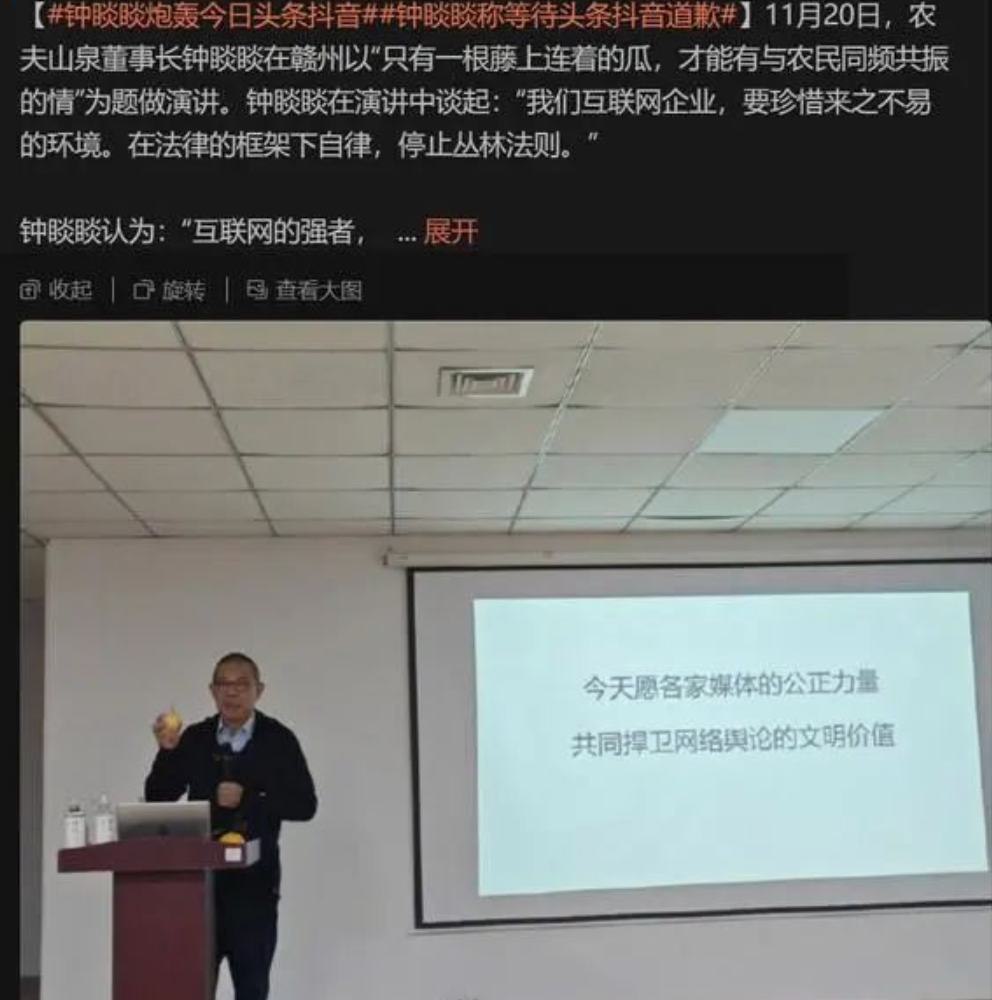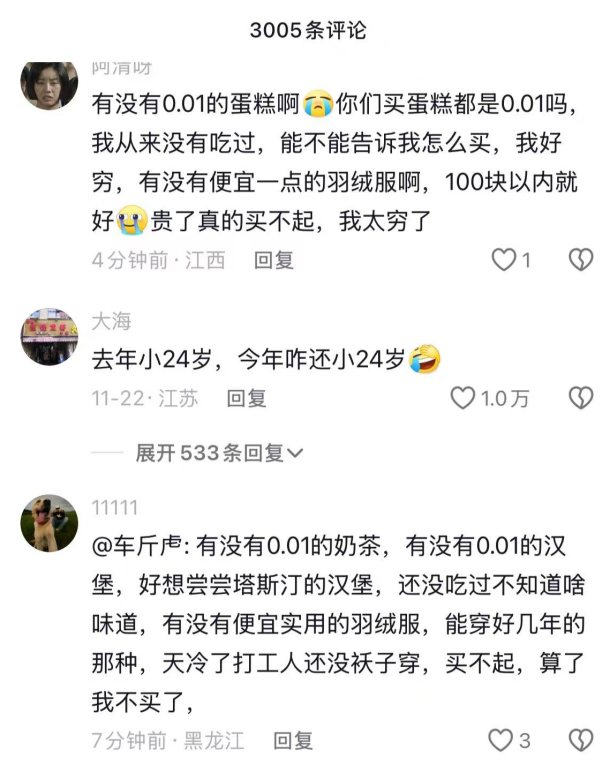Algorithm Under Scrutiny: Traffic Platforms Urgently Need Reform
![]() 12/19 2024
12/19 2024
![]() 554
554


"Regulators' actions will put a 'tight hoop' on the compliant development of algorithms."
@TechNews Original
In 2020, an article titled "Food Delivery Riders, Trapped in the System" went viral, sparking a huge social response regarding the impact of food delivery platform algorithms on riders' labor.
At that time, while public sympathy was directed towards riders trapped by platform algorithms, few were aware that, in the context of the digital economy, individuals had long been enclosed in information cocoons created by these algorithms.
With the continuous improvement of netizens' knowledge and awareness of privacy protection, there have been increasing complaints about big data price discrimination and rumors spread by platforms.
Recently, Douyin, a content community with over 600 million daily active users, has been embroiled in public scrutiny over its algorithm. Especially since November, first, Zhong Shanshan, the founder of Nongfu Spring, called out Zhang Yiming, saying, "Don't evade responsibility using the so-called safe harbor principle," and later, there were questions about the connection between the incident involving former gymnastics champion Wu Liufang and the platform's algorithm.
Despite consecutive denials by the Vice President of ByteDance, discussions about the merits and demerits of this content platform giant's algorithm are evolving into a social issue.
Recently, the Secretariat of the Office of the Central Cybersecurity and Informatization Commission and three other departments issued the "Notice on Launching a Special Action to Address Typical Issues with Online Platform Algorithms" to thoroughly rectify issues such as information cocoons, addictive content, and big data price discrimination.
As regulators intervene to put a 'tight hoop' on the standardized development of algorithms, how should content platforms, deeply bound to algorithms, weigh the balance between compliance, platform interests, and user experience?
01
The Dark Side of Algorithms: The Resurgence of Values Debates

In 2013, shortly after the launch of Toutiao, Zhang Yiming wrote an article titled "Cheering for Larry Page's Courage to Shut Down Google Reader." In it, he expressed his views on the impending closure of Google Reader, a user-subscribed model, and proposed a "smarter, more suitable for the masses" information solution, namely, personalized recommendations based on algorithms.
This solution set the tone for the daily operations of Toutiao and Douyin thereafter.
Admittedly, the personalized recommendation feature of content platforms based on algorithms has obvious advantages: it effectively provides users with personalized content, enhances their viewing experience, and thereby increases user stickiness and platform activity. Additionally, it allows high-quality content creators to gain more exposure.
Douyin user Xinxin believes that personalized recommendations make each person's Douyin experience unique. She spends 3-4 hours a day watching short videos on Douyin, but when she occasionally uses her friend's account, she rarely comes across content she likes, significantly reducing her short video viewing time.
As a low-cost pastime after work, Xinxin believes that watching interesting short videos helps her relax.
However, it cannot be denied that the content ecosystem composed of a massive number of creators also magnifies the evils of algorithms.
During an event on November 20, Zhong Shanshan called out Zhang Yiming, Douyin, and Toutiao, mainly pointing to the harm caused by rumors. In the Wu Liufang incident, media questioned Douyin's platform, suspecting it of using controversial figures to attract traffic.

In response, Li Liang, Vice President of Douyin, responded twice.
Regarding the Zhong Shanshan incident, Li Liang admitted that the platform's algorithm lacked sufficient science popularization and transparency, and that rumor and cyberbullying identification and crackdown efforts were insufficient.
For the Wu Liufang incident, Li Liang claimed that the growth in her fans had nothing to do with the algorithm and was entirely due to social attention generated by news events.
We won't delve into the above controversies, but when platforms pursue profits through algorithm application, it's often difficult to strike a balance between user experience and platform interests.
Zhang Yiming's early statement that "algorithms have no values" once pushed headline-dependent algorithm recommendations into the limelight of public opinion.
So, do algorithms have values?
Discussions on this topic never cease. As early as 2022, at the "Platform Economy Innovation and Governance" seminar hosted by the National School of Development (NSD) at Peking University, Zhang Junni, an associate professor of economics at NSD, Peking University, commented that although technology is neutral, the people who design algorithms have their own values. "Even if they have not intentionally infused their values into it, the effect embodied by the algorithm may still reflect values."
Famous historian, philosopher, and writer Yuval Noah Harari recently mentioned in an interview, solidifying the "evil of algorithms" from a theoretical perspective.
Harari stated that algorithms are ubiquitous in social media. Social media applications use AI algorithms, largely to increase user engagement and prolong their stay on the platform.

He used Facebook as an example: "If you spend more time on Facebook, the platform can show you more ads, allowing them to collect more data and sell it to others or users to produce new products."
This model can also be applied to domestic social platforms, including Douyin.
Rumors and cyberbullying are hidden under personalized recommendation algorithms, and user experience and platform revenue are considered separately. In this context, it seems destined that at this stage, content platforms and users cannot fully share joys and sorrows.
02
Maximizing Platform Interests: Inevitably Suspected of "Price Discrimination"

As one of the persistent problems derived from algorithm applications, big data "price discrimination" is widespread on various online platforms such as e-commerce, food delivery, and ride-hailing.
Douyin, which has been laying out content e-commerce for a long time, is no exception.
Douyin user Beibei told "TechNews" that during the platform's Double Twelve promotion, she found that for the same 300-yuan-off-40-yuan coupon, clicking the entry showed that the coupon was "already claimed," but switching to a friend's account allowed her to successfully claim the coupon.
When inquiring about this matter with customer service, the response was, "This event randomly invites some users to participate through the system." Beibei did not recognize this explanation. She believed that her account frequently shops on Douyin, while her friend rarely uses it. "This is the platform practicing price discrimination against regular customers," Beibei speculated.

Image source: Douyin e-commerce
After Beibei posted her shopping experience on social media, many consumers also shared similar shopping experiences in the comments section.
Of course, browsing social media platforms reveals that traditional shelf e-commerce platforms such as Taobao and Tmall, as well as content e-commerce platforms like Douyin, Kuaishou, and Xiaohongshu, have all been criticized to varying degrees for price discrimination. Behind this phenomenon lies the consideration of maximizing e-commerce platform interests.
Taking Douyin e-commerce as an example, relying on massive content, Douyin e-commerce has seen impressive GMV growth since its launch. However, after adopting a low-price strategy to cope with price competition, GMV declined this year.
According to "LatePost," in January and February of this year, Douyin e-commerce achieved a total GMV of nearly 500 billion yuan, with a cumulative year-on-year growth rate exceeding 60%. By March, Douyin e-commerce experienced its first year-on-year growth rate drop below 40%, further declining to within 30% in the second quarter.
To curb the further decline in GMV growth, Douyin e-commerce re-prioritized GMV as its top priority in July this year.
On the one hand, it wants to use low prices to attract and retain users to compete with competitors; on the other hand, considering GMV, it may have to differentiate between users. This is perhaps an inevitable choice for e-commerce platforms in the fierce market competition.
Faced with the intensifying phenomenon of big data price discrimination, regulators have begun to issue explicit prohibitions.
The "Notice" jointly issued by the aforementioned four departments mentions that it is strictly forbidden to use algorithms to implement big data "price discrimination" and to use user characteristics such as age, occupation, and consumption level to differentiate pricing for the same product.
In addition, the "Notice" points out that it is necessary to increase the transparency of promotional discounts and clearly explain the conditions for obtaining coupons, the number of coupons issued, usage rules, and other content. The reasons for failing to obtain coupons must be objectively and truthfully stated, and it is strictly forbidden to use prompts such as "too late" or "just missed it" to conceal the true reasons.
Regarding this, Zhang Yi, Chief Analyst at iiMedia Research, believes that price discrimination by platforms creates an unequal purchasing relationship between merchants and consumers, which undoubtedly affects consumers' trust in the platform. Although the governance of price discrimination may incur certain compliance costs in the short term, it is beneficial to restoring consumers' trust in the platform in the long run.
03
Reverse-Domesticating Algorithms: Awaiting Reform

After realizing the drawbacks of platform algorithms, a trend of reverse-domesticating algorithms is emerging among young people. The related hashtag #YoungPeopleBeginReverseDomesticatingBigDataPriceDiscrimination# even trended on Weibo.
In media reports, young people's actions to reverse-domesticate algorithms include but are not limited to "brainwashing" their phones by shouting into them or leaving comments like "too expensive, can't afford it," uninstalling apps or deactivating accounts to reregister as new users, and more. These seemingly mystical behaviors actually reflect young people's counterattack against platform algorithms.

Image source: Douyin screenshot
To break out of information cocoons, many people even turn off personalized recommendations to prevent addiction.
Behind young people's reverse-domestication of algorithms lies their rebellion against the platform's inadequate information supervision and unreasonable behavior in differentiating between users. With the promotion of multiple media reports, the trend of resisting algorithms will undoubtedly intensify.
Apart from users declaring war on algorithms, the constraints of relevant regulations are also a "Damocles' sword" hanging over platforms.
In late November, Kuaishou was penalized for inadequate implementation of the youth mode, leading to the spread of illegal information. This served as a warning for Douyin, which also relies on short video content as its moat.
Shortly thereafter, the joint notification issued by the four departments to address typical algorithm issues also proved that, against the backdrop of official efforts to govern algorithm chaos, an optimization and upgrade reform of platform algorithms is inevitable.
In this context, as a leading domestic content platform, Douyin will inevitably attract more scrutiny from the outside world. Zhang Yiming and others, deeply embroiled in the algorithm's public opinion field, are also awaited by the market to demonstrate their resolve for reform.
In fact, a nationwide battle against algorithms has already begun. However, it is evident that algorithms penetrate all aspects of platform operations and have their merits. It is unreasonable to abandon them outright. Then, without abandoning the use of algorithms, how to reconcile with users will be a long-term issue that platforms need to explore.
Obviously, the future of algorithms should not be solely determined by platforms.







